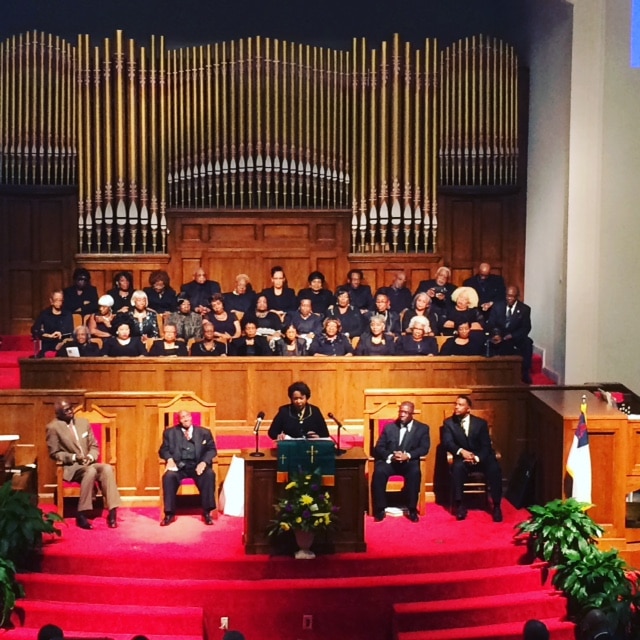US Attorney General Loretta Lynch spoke to a packed congregation at the 16th St. Baptist Church Sunday to commemorate Rev. Martin Luther King Jr. Lynch says the city’s past and King’s work have made Birmingham a beacon for civil rights in the United States.
Ahead of the final major speech by the first African-American woman to serve as U.S. Attorney General, theater students from the University of Alabama at Birmingham performed moving pieces about the struggles and hatred black people endured in the South during segregation.
When Lynch took the podium, she reflected on the church’s place in the civil rights movement and how it was witness to both progress and tragedy.
“Sixteenth street reminds us as few places can that freedom is not free,” she said. “It comes with a price. And the price of freedom is constant vigilance.”
Lynch spoke on the days of segregation in Birmingham and the tireless work of Rev. Martin Luther King Jr. and other African-Americans, who bravely stood up against their oppressors. Upon reflection, she admitted, “But because of what happened in Birmingham in those days and because of the hope that Birmingham brought to this country I am able to stand before you as the 83rd attorney general of the United States of America serving in the cabinet of the first African-American president of these United States.”
But, Lynch added, Americans continue to face obstacles in the quest for a more just United States, and Birmingham residents like Makobe Tabengwa agree.
“One thing that really resonated with me from her message was that we still have a lot of ways to go,” he said. “And so, I think that her visit just shows that Birmingham is a city of progress and change, and that acknowledging the historical significance of Birmingham is something that we can use in the future.”
And with the Birmingham civil rights district now a designated national monument, the city’s history will be preserved for generations to come.

